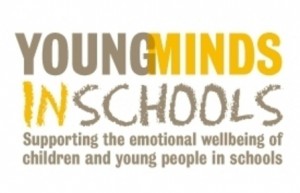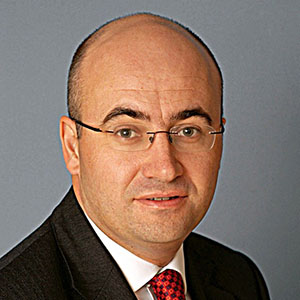2014 was both a challenging and productive year for those of us engaged in the development and promotion of better mental health services for the young.
The launch of the Mental Health Crisis Care Concordat, the Government’s five year plan (Closing the Gap), the review of police powers of restraint and revisions to the Mental Health Act Code of Practice, contained much to strengthen protection and support for the young and the vulnerable.

But of all of this was against a backdrop of decisions to reduce investment in CYP mental health services in a number of local areas, and a continued concern that too many Children and Adolescent Mental Health Services (CAMHS) are remote, inflexible and difficult to access.
The formation, last autumn, of the Children and Young People’s Mental Health and Wellbeing Taskforce, recognised the need to take stock and forge a new way forward. Then, as now, I am proud to co-chair this body with Dr Martin McShane, NHS England’s Director for People with Long Term Conditions. Together, we are working hard to corral insight and expertise to address the imbalances and inequalities which currently exist in the provision of young people’s mental health services.
Our inaugural meeting was very much about agreeing our terms of reference, defining challenges, confronting scepticism – our own and others – and establishing those cohorts most in need of our support. Outside of these meetings, research and discussion has continued to define the areas and groups where we can best focus our efforts. This has included engagement with young people and professionals, and the superb work of four expert Task and Finish groups.
One of the first major announcements has been the awarding of funding to eight pilot areas chosen to lead innovation in children’s mental health service commissioning. In December last year, North East West Devon, South Derbyshire, Newcastle, Tameside and Glossop, South Norfolk, Southampton, Wolverhampton and South Sefton CCGs were awarded up to £75k each of a £500k fund to improve commissioning capacity and capability for the CCGs. Many of these pilots cover more than one CCG and local authority area and will be working in partnerships with children, young people and their carers as well as wider partners, including the third sector.
The funding will be used to accelerate collaborative commissioning and co-working between health, social care and education services. This collaboration will lead to a whole system approach to transforming children and young people’s mental health services (CAMHS).
The pilot areas now have until April this year to identify early learning and good practice to be shared with other CAMHS commissioners and to implement their learning into their local partnership.
In South Derbyshire, various health and care agencies will be working with schools to promote joined up care and support for children, young people and their families. Similarly, in Newcastle, work is underway to work collaboratively to commission emotional wellbeing and mental health services for families in Newcastle and Gateshead. Meanwhile, Southampton has made great strides in education and awareness with its Headstart Project, involving 21 schools already signed up to emotional first aid training, on site counselling and mindfulness training. And lastly, in Wolverhampton, health, social care and education are to work together to develop services for those up to age 25. These will focus on early intervention, connectivity of services and care pathways, with the aim of reducing inpatient - and out of area - placements.
I should also mention that those areas which submitted bids with a strong focus on tackling eating disorders will be contacted separately in relation to additional funding. This follows the Deputy Prime Minister’s announcement last month of £30 million funding each year over the next five years for young people with mental health problems. Anorexia is a difficult and detrimental psychological condition which can kill young people, so this is welcome additional investment in an area where early intervention is absolutely critical.
 We held the third meeting of the taskforce on Tuesday 16 December. We were delighted to receive a presentation from Youngminds on their engagement work with children young people and parents. It was perhaps not surprising that their interactions with over 1200 children, young people, parents and carers revealed a desire for services which are quick to respond, non-clinical in approach and - where appropriate - anonymous for the user. Our Task and Finish Group co-chairs also presented proposals covering such areas as challenging stigma, improving service access, enhanced data sharing and system governance. These proposals are being used to inform the development of the final report.
We held the third meeting of the taskforce on Tuesday 16 December. We were delighted to receive a presentation from Youngminds on their engagement work with children young people and parents. It was perhaps not surprising that their interactions with over 1200 children, young people, parents and carers revealed a desire for services which are quick to respond, non-clinical in approach and - where appropriate - anonymous for the user. Our Task and Finish Group co-chairs also presented proposals covering such areas as challenging stigma, improving service access, enhanced data sharing and system governance. These proposals are being used to inform the development of the final report.
Meanwhile, over 600 professionals took part in engagement activity through our three workshops and the online survey. The findings of both engagement pieces will be pulled together and shared with Ministers and the sector later this month.
Between Christmas and New Year, Martin and I were busy drafting the first version of what hopefully will become the final report, drawing on the taskforce’s work. As with my previous work on the Crisis Care Concordat, we are trying to deliver a report that doesn’t pull its punches. We want it to make the case for change but also seek to build consensus across Government, the delivery system and key stakeholders around what that change needs to be and how it could be delivered. We will test our emerging conclusions with the Taskforce next week and still aim to publish the report, subject to clearances, at some stage in February.
It remains a privilege for me to be involved so closely in this work. I am incredibly grateful to the taskforce, the young people and all the professionals who have given their time, experience and expertise so freely. They have already achieved a great deal in just three months – and we look forward to achieving much more in the time remaining! Your thoughts and suggestions are always welcome. And if you want to engage directly with us why not join us on Twitter for a tweet chat courtesy of WeNurses on Monday 12 January at 8pm.
